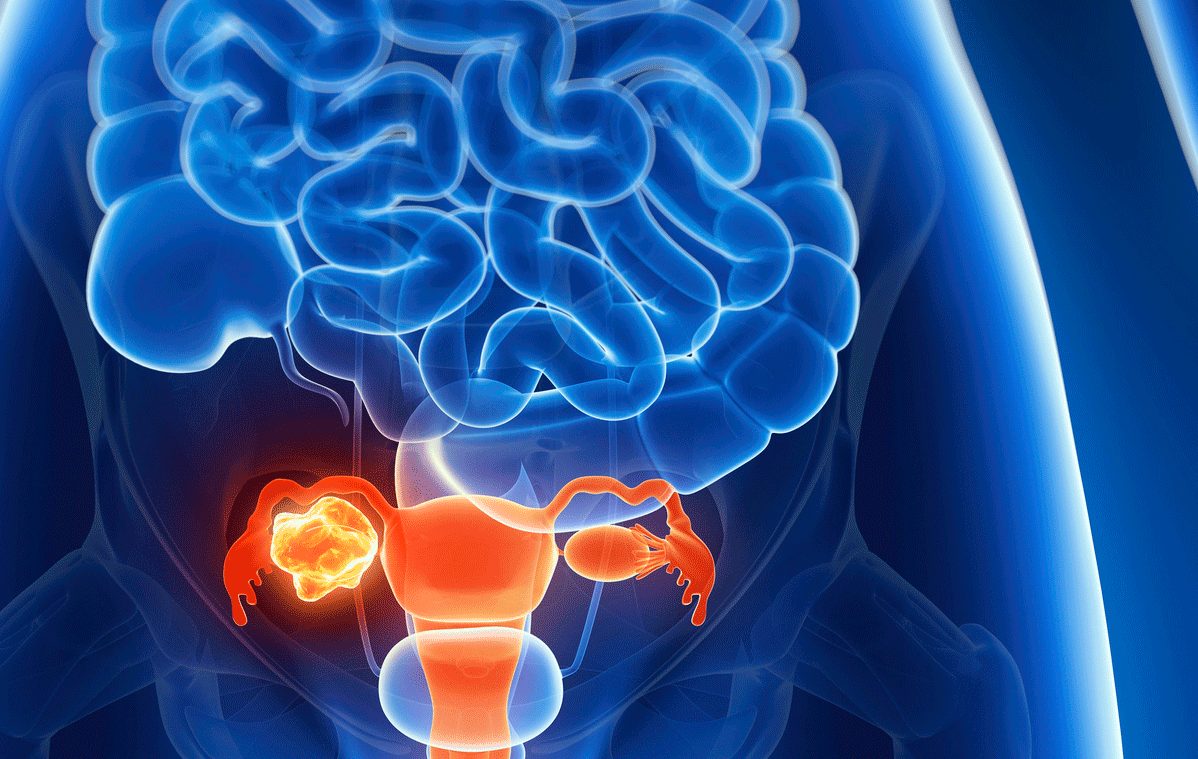Signs and Symptoms of Ovarian Cancer

In the early stages, the signs and symptoms of ovarian cancer are easy to blame on indigestion, IBS, or aging. See a doctor if your sensations aren’t normal.
Bloating. Feeling too full. Constipation. Those are all common symptoms of many health problems. You might assume you have indigestion — or if it happens often, food intolerances or irritable bowel syndrome (IBS). But this kind of ordinary discomfort can also indicate early ovarian cancer.
In its earliest stages, the signs and symptoms of ovarian cancer are easy to dismiss or mistake as something else.
YOU MIGHT ALSO LIKE: Ovarian Cancer Stages
One woman’s son is an ovarian cancer specialist. Yet it took her a while to recognize her symptoms as ovarian cancer. In her late 60s, she began having trouble getting to the toilet on time to urinate. That isn’t uncommon among older women, so she didn’t suspect anything serious. She had diarrhea, which she attributed to food intolerances. Her jeans got tighter, and she began to look as if she were pregnant.
Another woman went to the doctor because of pain on her lower left-hand side. After a urine test, she was told she had an infection and was prescribed antibiotics. But the pain came back, worse. She also had a backache, bloating, and lost her appetite.
The first sign for Audrey was a sharp pain in her stomach. Her doctor guessed it was IBS and suggested she come back if the pain didn’t go away. Then she felt a lump under her skin in the area. Her doctor ordered tests, including the test for the protein CA125 in her blood, which is a sign of ovarian cancer at high levels.
(You can read other personal stories about ovarian cancer here.)
The signs and symptoms of ovarian cancer include:
- Abdominal bloating or swelling. Notice if it seems constant and isn’t clearly linked to gassy foods. One clue, if you are post-menopausal: You may have the strange sensation of a bad period.
- Pain in your abdomen or pelvis. It might be a dull ache or sharper and feel like acid reflux.
- Difficulty eating or feeling full quickly.
- Lack of appetite.
- Feeling an urgent need to urinate.
- Needing to urinate frequently. You might also have pressure in your pelvis.
- Change in bowel habits (constipation or diarrhea).
- Change in menstrual periods.
- Vaginal bleeding between periods.
- Back pain.
- Weight gain or loss, especially if you are eating less but your clothes are tight. Your face may appear thinner while your abdomen grows larger. A malignant growth can eat up nutrients, so your body may be drawing down on your fat stores even as you loosen your belt.
If you experience any of those symptoms every day, or almost every day, for more than two weeks, mention ovarian cancer to your doctor.
Ask for a diagnostic imaging scan if you’re enduring persistent abdominal pain or pelvic discomfort. For pelvic pain, you will generally get a pelvic ultrasound. If you have pain in your upper abdomen, you’ll have tests to rule out gallstones and acid reflux.
Be persistent, especially if you have other risk factors, such as a family history of breast or ovarian cancer. Even the vague idea that something’s not right is worth investigating. The sooner you catch ovarian cancer, the more successful your treatment will be.
Updated:
May 23, 2023
Reviewed By:
Janet O’Dell RN